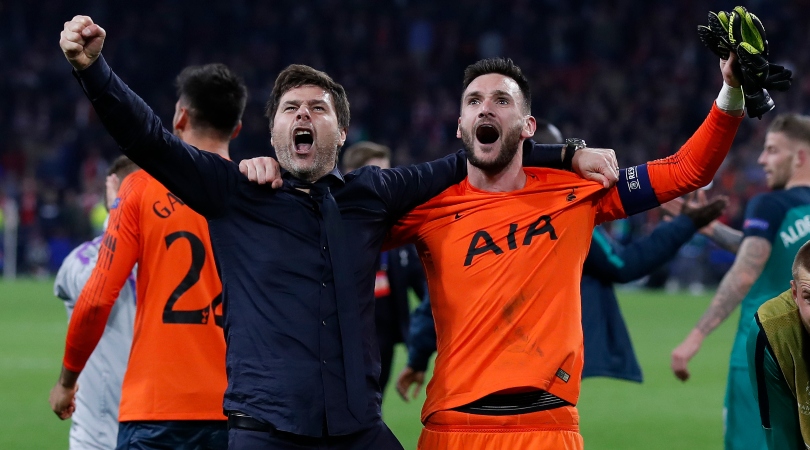Modern football trends dictate good full-backs move into midfield. Jurgen Klopp should ignore that
Trent Alexander-Arnold has been tipped as having the potential to be the next Philipp Lahm. But his brilliance at Liverpool comes precisely because of his position, writes Seb Stafford-Bloor

A couple of years ago, there was a graphic doing the rounds on social media. It was a still screenshot from a Bayern Munich game and it showed Philipp Lahm in possession of the ball, and an overlay identifying the available passing options which surrounded him.
It was neat and pie chart-ish and, briefly, it became a thing. It was one of those voguing quirks which blights the game from time-to-time and which every pseudo-smart Twitter account felt the need to replicate.
It was annoying, but it was still based on something which was real enough. Lahm did become an excellent central midfielder and that remains one of the most famous positional changes enacted in the middle of a career.
The trouble with that, of course, is that it was a redesign architected by Pep Guardiola and, as such, it became the height of fashion, legitimising the pathway between full-back and central midfield. Worse, because of how successful Lahm was and what the teams he played for achieved, it actually seems to have become an ultimate destination in the years since.
Guardiola made that change in 2013, saying of Lahm that he was “perhaps the most intelligent player I have ever trained in my career. He is at another level."
He was right: Lahm was rare. How rare was shown during Guardiola’s blundering first season at Manchester City, when he tried to repeat the trick with Pablo Zabaleta and Aleksandar Kolarov. It did not go well and because it didn’t, Lahm’s own transition was even more admired for its success.
The end result is that central midfield seems to be an area of the field into which a full-back can now graduate. Not via his manager’s imagination, but almost by right in a ‘that’s where the very best go’ sort of way.
The best features, fun and footballing quizzes, straight to your inbox every week.
Which, in part, explains the quiet conversation around Trent Alexander-Arnold’s future and the expectation that he will one day follow Lahm up and inside.
That may very well happen, but it still seems strange. Not least because it seems predicated on an outdated belief that football matches are controlled by midfield battles alone and that intelligence and craft can only be magnified by those roles.
The chances are that, with a few seasons to adjust and with the right combination of players surrounding him, Alexander-Arnold has the breadth of technical abilities to become accomplished in nearly any position. But to become more influential than he is at the moment? That’s an entirely different question.
It’s also a strange one to ask on the basis of how Liverpool are playing and how regularly Alexander-Arnold exerts his influence. Even just within the last few weeks, he – along with Andy Robertson – has helped win or change the course of games against Tottenham, Manchester United and most recently Manchester City.
While you're here, why not take advantage of our brilliant subscribers' offer? Get the game's greatest stories and best journalism direct to your door for only £9.50 every quarter. Cheers!
Not in a literal way, with goals or assists, but in his effect on the tone of his team’s performance and, as a result, the momentum of the match. He changed the way those games looked and felt and, really, there is no more profound effect than that.
Whenever Alexander-Arnold gives one of those performances, what you’re invariably left thinking about is just how perfect he is for his position. And perfect in the designed-to-play-it, extremity-of-evolution sense.
Most modern full-backs seem to be works of compromise. They’re outstanding athletes and often skilful, but rarely are they truly efficient with the ball.
That’s broadly fine, that doesn’t stop them from stretching the width of a pitch or fulfilling their tent peg function. But Alexander-Arnold is an actual weapon. He’s not Dani Alves yet, but that’s the footballing family to which he belongs. He has all of the pre-requisites – the speed, the stamina, the skill – but also the decadent flourishes: the craft and the vision, and the mind to be more than a well-oiled component.
What a luxury for Liverpool to not only have a player who can bounce between the goal-lines without breaking sweat, but who also has a pass that can change a game which – crucially – he can deliver from anywhere between those two points.
There are many examples of that, but none better example than that contained with Roberto Firmino’s goal at the Etihad last season. How many contemporary full-backs have the ball that Alexander-Arnold played in that move? Few. How many could have executed it with their wrong foot? Fewer still. And, finally, which other positions on the pitch would have afforded him the time and space to play it all. Most likely, none.
So what is influence if it’s not that? If a player is perfectly wedded to his position and the nature of that role only accentuates those abilities, why would there ever be a conversation about interfering with that harmony?
NOW READ...
QUIZ Can you name the 29 managers who've bossed three or more Premier League clubs?
GUIDE Premier League live stream best VPN: how to watch every game from anywhere in the world
Seb Stafford-Bloor is a football writer at Tifo Football and member of the Football Writers' Association. He was formerly a regularly columnist for the FourFourTwo website, covering all aspects of the game, including tactical analysis, reaction pieces, longer-term trends and critiquing the increasingly shady business of football's financial side and authorities' decision-making.

